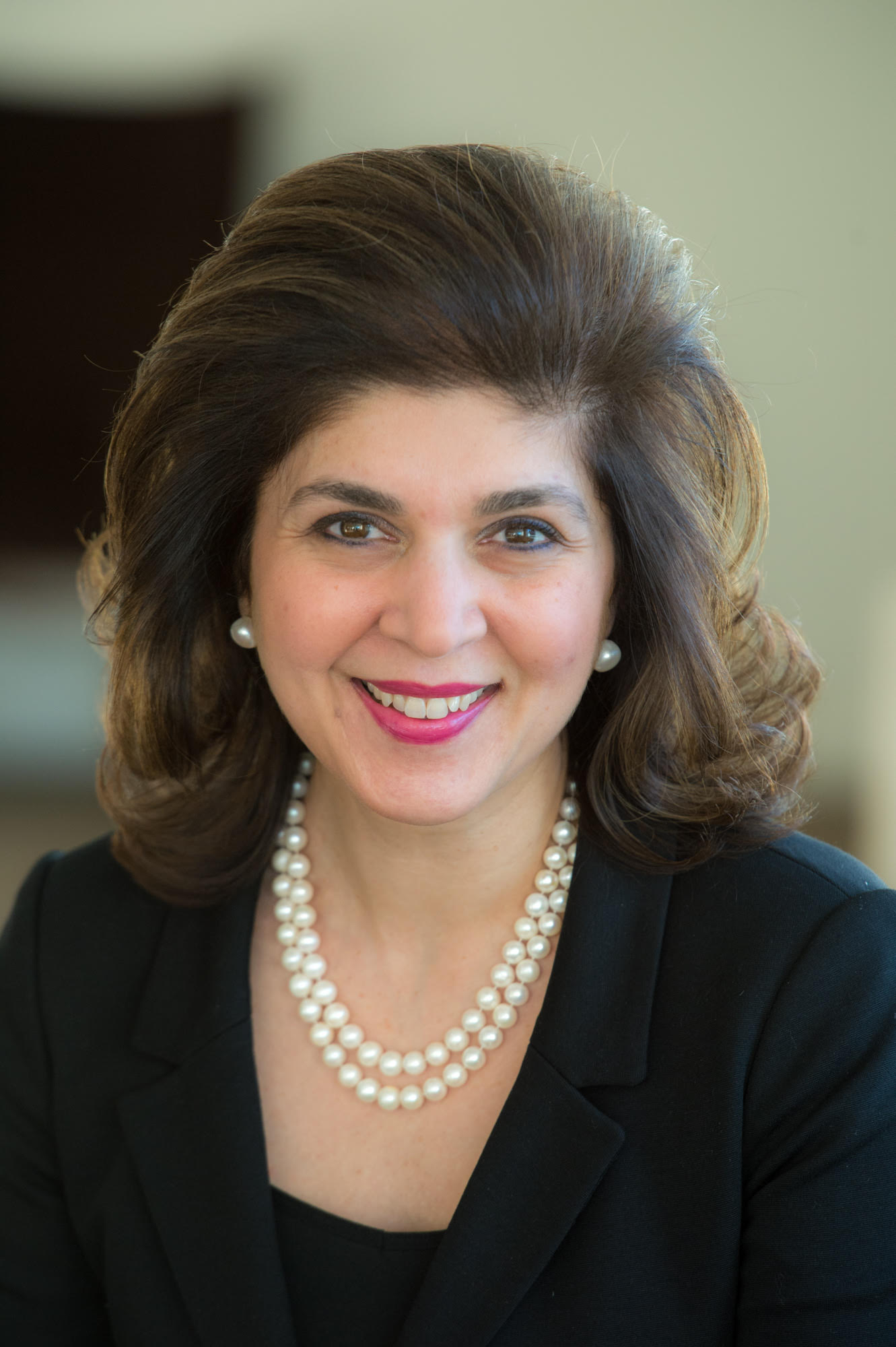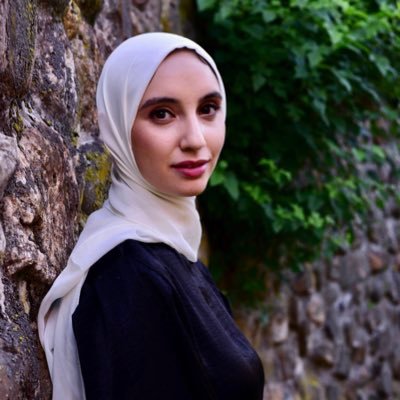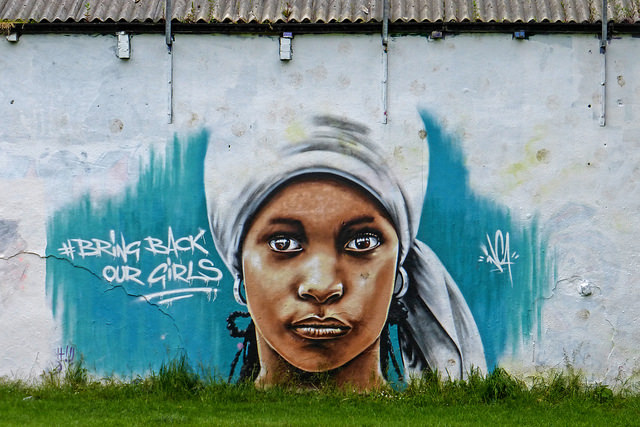Farah Pandith served as the first-ever Special Representative to Muslim Communities, appointed by then-Secretary of State Hillary Clinton in 2009. In this role, she created Generation Change, which gathered young “change makers” together to work on issues such as violent extremism; Viral Peace, an online counter-extremism initiative; and Hours Against Hate, a virtual campaign (co-created with Hannah Rosenthal) asking youth to reject bigotry and hatred around the world. Now, she’s out with a new book on how the U.S. can win a war against extremists, or the “bad guys.” altM’s Asma Uddin had the chance to chat with Farah about her bold new book, How We Win.
Asma: In the Introduction to your book, you talk about how your mother instilled in you an appreciation for diversity and a fundamental ethos of kindness. Can you elaborate on this some more?
Farah: My mother is a doctor and practiced medicine outside of Boston. She decided to do so at a small county hospital where she was also the Medical Director. I grew up hearing her talk about the importance of dignity and respect…that for patients and their families, no matter their background—rich or poor—common humanity, care and compassion was vital. Watching sick and sometimes dying loved ones, it was essential to give patients dignity—listening to their needs, respecting their viewpoints…not pushing one’s point of view on someone else…giving them a sense of their own power and importance even when they were so humbled by their physical condition. Mom’s sense of humanity was a critical part of my home ethos. I learned from her the importance of being decent and kind, and being cognizant of the power of words and actions. I carried that lesson with me in my years of government service and continue to be inspired by it today.
Asma: On p.23, you note your frustrations with the Obama Administration’s approach to CVE. You write: “They didn’t believe you could do two things at once—extend a hand in friendship to Muslims and speak honestly with them about violent extremism and how to solve it.” You seem to be suggesting that the administration almost infantilized Muslims, seeing them as not fully capable of complex interactions. Would you agree that the administration infantilized Muslims?
Farah: I talked about the strengths and challenges of both the Bush and Obama administrations when it came to building the infrastructure for the ideological war. I think it is essential to live in honesty and to assess with a cleared eyed perspective what I experienced.
I know first-hand that right from the start President Obama was focused on building a new type of relationship with Muslims in America and around the world—you just need to listen to his inauguration speech and the immediate follow up in Ankara and Cairo. His administration wanted to be clear about respecting Islam and Muslims. However, as I point out, in being so careful about the kinds of avenues that were used to engage, at first there was great reluctance to discuss anything that could be perceived as touching extremism. This came from both political and policy concerns. It was not about assessing maturity of Muslims, it was about making sure that the longer-term goals of engagement were not taken off track. As I say in How We Win, we can engage with Muslims on a wide range of issues at the same time. Later in the Obama administration policy makers were indeed reaching out to Muslims to work with them on ideas to stop violent ideologies from preying upon youth. In the two administrations I had the pleasure of serving, officials struggled with this balance because both Bush and Obama knew that the vast number of Muslims in the world were not extremists and rejected the ideology of terrorist organizations and that Muslims themselves were the greatest victims of this kind of violence. But, they also knew that extremists were preying upon youth from Muslim communities.

Asma: Your book is centered on the Muslim youth identity crisis. Solving this crisis in the right way is the key to “winning.” In contrast, many critics of CVE policies say that politics is the crux of the issue – that extremism is rooted fundamentally in political grievances. Can you reconcile these two positions, or if not, explain why you think politics is secondary to identity issues?
Farah: It is vital that readers understand and “see” what I saw in nearly 100 countries. The demographic of Muslims that grew up after 9/11 is huge and important. It is these young people that have had an especially challenging time dealing with the navigation of identity. Bad guys know this and are preying upon this demographic. That is the point. While political issues always can be used to amplify the “Us versus Them” ideologies and also ignite other emotions, the sense of power in belonging and identity is essential to confront. Throughout history, we’ve seen radical political groups and movements form as a result of an identity vacuum felt by segments of different societies. To address political narratives, we also need to address the underlying issues of belonging and the search for meaning. These struggles with identity and meaning are what extremists of all kinds use to win new recruits. They’re the fields of battle in this fight against extremism that I’m sad to say we are losing. We can see their success from Charleston and ChristChurch to Boston and Bali.
Asma: Your chapter on “Halalization” was fascinating, and I think relevant not just to foreign Muslim communities but ones here in the US, too. I found particularly interesting your idea that the performance of Muslim religious identity reflects fragility, not strength or confidence. Is there a way to perform Muslim religious identity in a way that is strong, not fragile?
Farah: The point I made in the chapter “Halalization”—the phrase I coined to help me express what I saw around the world—was that in order to seem more authentically Muslim young people performed religion in various ways. They wanted to make a statement to themselves and others that they were Muslim—whatever that meant to them. Expressing your “Muslimness” is your own business. There is no right or wrong way to do that, but I would say that if you have a strong sense of self and a confidence about who you are and why you do what you do, you are strong. Expressing to yourself or the world that you are a particular thing means that you do it for reasons that are strong at the core, not because you believe it will make you be perceived a specific way— perceived by others or by yourself, for that matter.
I was floored by the various ways religiosity was expressed including drinking “halal water.” Water isn’t something that any other generation needed to be labeled “halal.” Things like that exploit the performative nature of religion among Muslim youth today. They want to be seen drinking THAT water, using THAT brand, wearing THAT maker…as if those things and actions gave them a special status as better Muslims. Their grandparents and parents focused on ritual practice and observance, but many young Muslims all over the world now see religious practice as a way to elicit others’ approval—from their friends or even their parents or grandparents.
Asma: In that same chapter, you say that the extended use of “halal” beyond food to courtship, romance, and the definition of family, is “bizarre theologically.” But isn’t another way to look at this phenomenon that Muslim youth today are more bombarded than ever with an environment that challenges traditional religiosity, and that viewing love and family through the lens of “halal” is merely a way to cope and respond to these challenges? In other words, a new environment calls for a new response, even a new terminology?

Farah: Muslim youth are indeed bombarded with an environment that challenges many things about religion, culture, culture versus religion, diversity of Islam and so on. It is hard to navigate all of this especially when we are dealing with an online/offline 24/7 cycle of attention on Islam and being Muslim. Finding ways to “cope” is each person’s right. I am not making a judgement on how one does this, I am observing that something new has happened and that in bringing about this new era in identity and performance it is bringing a new sense of Muslim-ness to the world. What is seen as right and wrong will also change because of it, and indeed, the way Muslims engage with each other will also manifest in new ways. Because this is such a huge change it is important to know it is happening as it is part of our world today.
Asma: On p. 181, you write that an “authentically” halal lifestyle can “quite easily” extend from fashion and travel “to include rape and other atrocities in the hands of an extremist group.” To me, this seemed like a giant leap – can you explain for our readers how you reached this conclusion?
Farah: When young people are in an ideological and emotional place where they feel the need to “be Muslim” the “right” way by expressing themselves in very particular narrow silos, it makes them vulnerable to extremists because the extremists are telling their recruits that there is only one way to be a “real Muslim” and they know how. For some, it is to wear a certain piece of clothing in a certain color in order to be as “authentic” as possible, for example. For others it is how they eat or pray. Extremists push this “authenticity” forward to those they are preying upon to recruit them and then also to justify vile acts like rape or murder. What groups like the so called Islamic State did was to exploit the foundation of this need to be authentic and justify their evil. Sometimes they try to convince their victims that what they are doing is just. We learned of an ISIS rapist who recited a verse of the Quran and then told his victim it was “halal” for him to rape her. Whether he was trying to convince himself or her or both we can’t know but the fact is, this idea of doing something clearly wrong by finding a “halal” reasoning is a tactic used by extremists.
Asma: Finally, in the “Sheikh Google” chapter, you offer some recommendations to curb the negative influence of the internet on Muslim youth. Some of what you recommend suggests that you would limit free speech beyond what’s typically considered legal in the US (under US law, most speech is protected except for speech that falls into particular categories, such as “incitement to imminent violence”). Is this intentional, and if so, is it because you thinkthe free speech clause doesn’t apply to US government actions abroad?
Farah: Of course, I 100% support free speech. My recommendations are not about not allowing free speech to any segment of society. My recommendations are about how we as a community of humans decide what is appropriate and acceptable to us. We already have red lines we use on how we talk about things in public spaces. We don’t yell “fire” in a crowded room. It is time for policymakers to acknowledge the fact that messages of incitement to commit acts of violence are subtly and not-so-subtly embedded in much of the memes, tweets, and GIFs in the digital space. And social media platforms in the private sector need to act upon that reality together with all of us. We must decide how to protect youth at all levels. We need to look at extremists online as we do child sexual predators. We have decided on norms that make sense yet also keep our values of free speech intact.
Asma T. Uddin is the founding editor-in-chief of altM.





